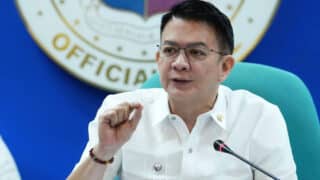Tax managers and a former finance chief Wednesday said they supported the lifting of the bank secrecy law for tax purposes to further shore up government revenues.
The Tax Management Association of the Philippines (TMAP) also challenged election candidates to fill up a survey that would reveal their stand on tax reform.
At a comprehensive tax reform dialogue Wednesday, TMAP president Benedict R. Tugonon said part of tax managers’ proposal to the incoming administration included the lifting of the bank secrecy law, consistent with international standards.
“Allowing revenue authorities to have access to bank transactions, under certain limited instances for tax purposes, will reduce instances of tax evasion,” Tugonon said in his presentation.
Tugonon noted that based on a study conducted by the US Agency for International Development, incremental revenues of 0.3-0.5 percent of gross domestic product (GDP) could be generated by allowing tax authorities to look into alleged tax evaders’ bank accounts.
In the same forum, former finance secretary Ernest C. Leung said he was also “unhappy” with the prevailing “very regressive” tax system such that comprehensive tax reform was needed, including the removal of the bank secrecy law.
He noted that the law on secrecy of bank deposits was put in place in 1955, a time during which American businesses in the country were protecting their margin. “The motivation [to pass the law] came from the US and that became a very serious handicap on our tax system,” he said.
Leung said that doing away with the bank secrecy law, among other tax reform measures, would lead to a more equitable taxation system.
The DOF and the Bureau of Internal Revenue (BIR) had long been urging lawmakers to repeal the bank secrecy law for taxation purposes, noting that the Philippines was one of only three countries in the world where there remained such a law.
Separately, TMAP said in a statement late Tuesday that it was working with the Commission on Elections to contact candidates so they could fill up the group’s “Election 2016 Tax Policy Survey,” which “contains the various tax issues covered by pending bills in Congress and those discussed by taxpayers and stakeholders.”
“The answers of the candidates will help the voters learn about their respective stand on the various tax issues and allow us to know the tax policy direction of the next administration,” TMAP said.
According to TMAP, its tax policy survey for the candidates for President, Vice President, Senate and the Lower House have the following objectives: To inform the candidates about the tax issues contained in various bills filed at both houses of Congress and those discussed in various fora or dialogues among taxpayers, tax practitioners and stakeholders, and to know the tax policy direction of the next administration.
“TMAP will be sending copies of the short 24-question tax policy survey to all national candidates. Other candidates are urged to answer the survey. A copy of the blank survey will be made available for downloading at the TMAP website. The returned filled-up survey forms will then be posted at the TMAP website and made available to media,” it added.


